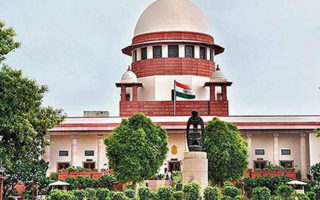
The Indian Constitution has many provisions to lend a helping hand to the marginalised people in the country. Providing reservations to the communities for education, employment, and others is one of them. Many people benefited from this provision. However, the general category candidates missing out on opportunities became a big concern.
To address the concern among the general category candidates, the Union Government proposed a quota of 10 percent for the Economically Weaker Sections (EWS) in admissions to educational institutions and government jobs. This move raised many concerns as the opposition parties and others allege that the marginalised communities would face issues.
Citing the same, a bunch of petitions were filed with the Supreme Court and the top court gave its verdict just a while ago. The five-justice bench led by Chief Justice India Uday Umesh Lalit heard the petitions and said the quota won’t violate the equality code and upheld the quota law.
Three justices supported the law and said the existing quota will not hinder the benefits of others, while two justices had a few reservations about the new quota. Justices Dinesh Maheshwari, S Ravindra Bhat, Bela M Trivedi, and JB Pardiwala are the other members in the bench.
One of the justices on the bench JB Pardiwala spoke about the reason behind bringing the reservation and said the idea behind this was to end social inequality and over the past seven decades we achieved it. Having said that, the justice said those who benefited from the reservation should take a backstep and let others move forward so that everyone would benefit.
The economically weaker sections (EWS) quota law was introduced in the Parliament by the union government back in 2019. The bill was tabled in the house before the Lok Sabha polls. The bill was drafted by the 103rd Constitution amendment.
The bill was drafted going by the recommendations of the commission headed by retired Major General S R Sinho. The body took around five years to understand and examine various aspects of society and made recommendations. The committee was formed by the Congress govt back in 2005 and the body gave its rapport in 2010. But the BJP took forward its recommendations.





